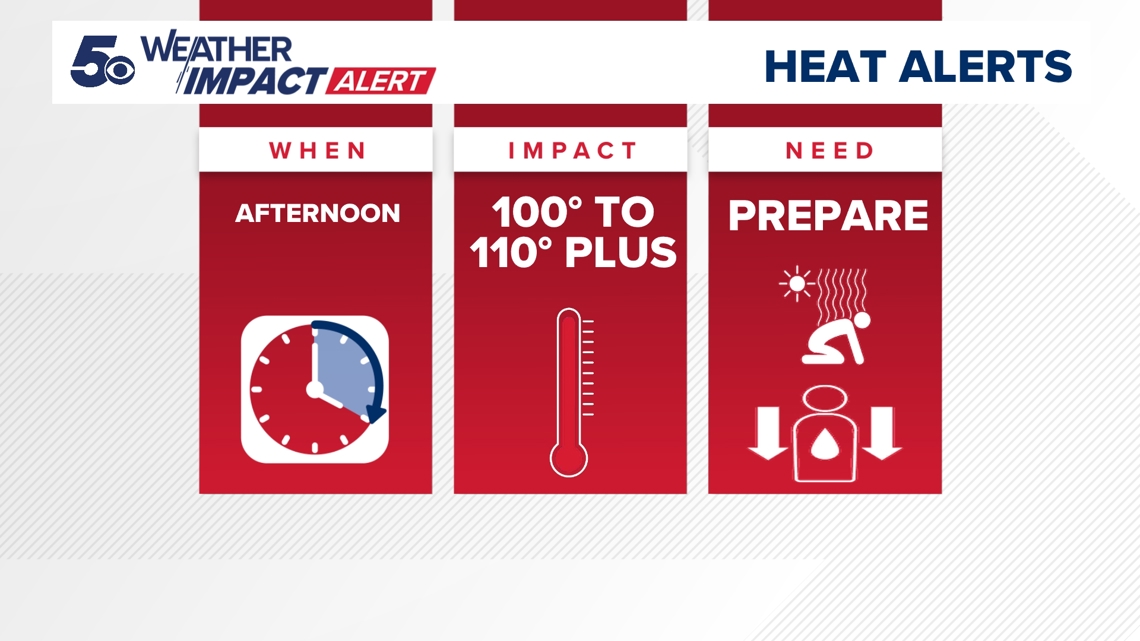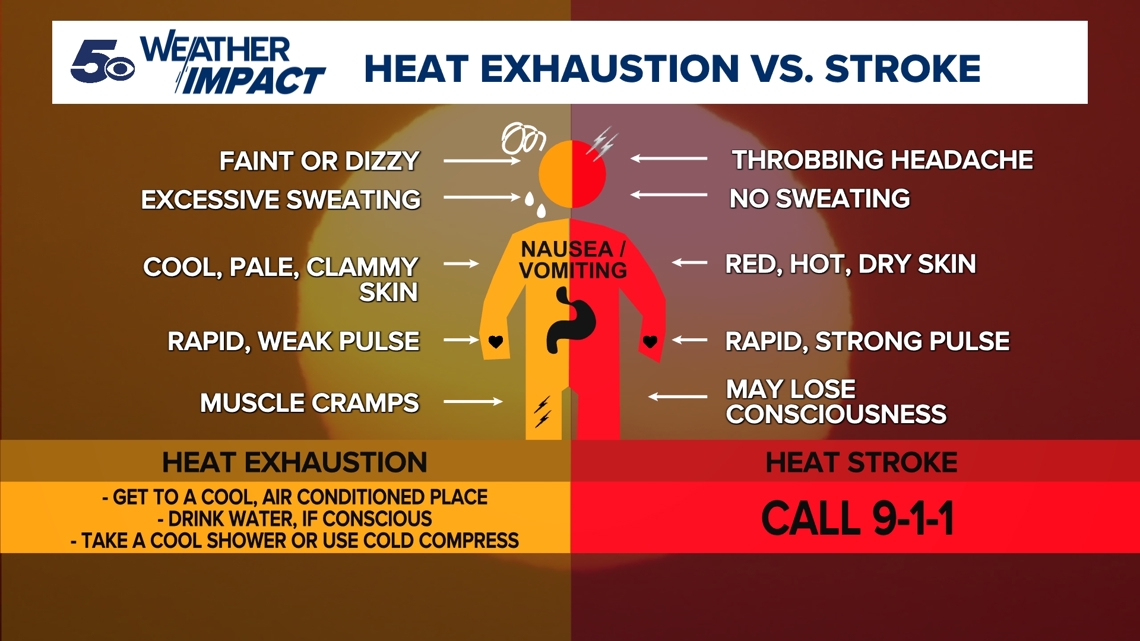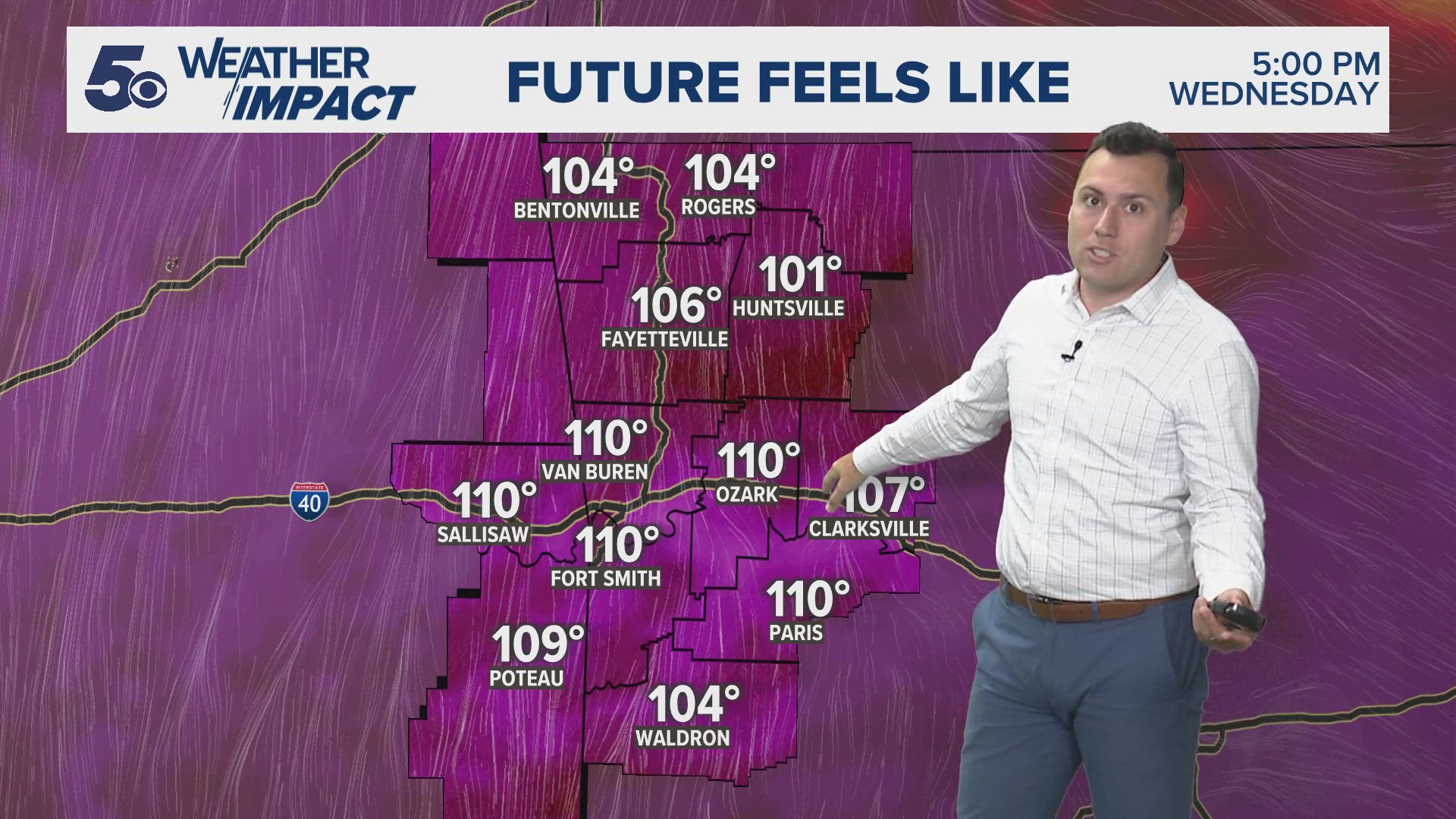ARKANSAS, USA — Every summer we tell you about how the National Weather Service has issued "heat alerts" whenever the heat index climbs into the triple digits. Whether it's a "heat advisory" or an "excessive heat warning," it's just hot and uncomfortable, right?
These alerts should not be ignored as excessive heat because it can lead to serious illness or even death. While it may just be summer in Arkansas, there are minor distinctions between the different heat alerts.
Alerts
Heat Advisory (orange)
You will usually see these advisories issued at the beginning of summer. This is when it starts to get uncomfortable outside and the humidity starts to become noticeably tropical. Heat advisories are issued by the National Weather Service (NWS) when the heat index or the feels-like temperatures climb above 100 degrees. When heat index values exceed 109 degrees, the heat advisory advances to a warning.
Excessive Heat Warning (hot pink)
Obviously, you will see a lot less of these issues as they only come around when we have excessive heat back in the forecast. Excessive heat warnings are issued when the feels-like temperatures exceed 110 degrees. If someone is exposed to the elements for too long without hydrating properly, heat illness can occur rapidly. While this warning is active, it is recommended to use extreme caution when outside for long periods.
Excessive Heat Watch (dark red)
Excessive heat watches are typically issued when heat index values are expected to exceed 110 degrees within a day and are expected to last for several days.


Signs of heat illness
When excessive heat is in the forecast, it's important to be mindful of the signs of heat illness. Some common symptoms are dizziness, headaches, or cramping. If you think you're experiencing a heat-related illness, it's important to hydrate and try to cool down by finding air conditioning. If you notice signs of heat stroke, reach out to emergency services.
Tips to protect yourself
- Stay hydrated
- Wear sunscreen
- Wear light-colored clothing
- Find AC or shade if you must be outside


Watch 5NEWS on YouTube.
Download the 5NEWS app on your smartphone:
Stream 5NEWS 24/7 on the 5+ app: How to watch the 5+ app on your streaming device
To report a typo or grammatical error, please email KFSMDigitalTeam@tegna.com and detail which story you're referring to.

